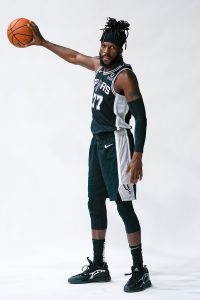The NBA’s Collective Bargaining Agreement requires teams to carry at least 14 players on their rosters during the regular season, not counting two-way players. However, clubs are allowed to dip below that line for up to two weeks at a time.
At the February 6 trade deadline, with so many players on the move, a handful of teams around the league fell below that 14-player threshold, meaning they’ll have to get back up to 14 later this month.
Here’s a breakdown of which teams must make at least one roster move shortly after this weekend’s All-Star Game:
Charlotte Hornets
The Hornets had a quiet trade deadline, but completed a pair of buyouts a couple days later, officially releasing Marvin Williams and Michael Kidd-Gilchrist on February 8. They’ll have until February 22 to add at least one player to their roster.
Since the 18-36 squad is well out of playoff contention, Charlotte is far more likely to sign a G League prospect than an NBA veteran. By the end of the season, I’d expect the Hornets to fill both their 14th and 15th roster spots with young players on multiyear deals, in the hopes that one or both of them prove to be keepers.
Houston Rockets
The Rockets had been carrying 14 players since waiving Gary Clark last month. On February 5, they dipped to 13 when they acquired Robert Covington and Jordan Bell (later flipped for Bruno Caboclo) in a deal that saw them send out Clint Capela, Gerald Green, and Nene. They’ll have to add a new player before they resume play next Thursday.
Houston is closely monitoring the buyout market, but if there’s no one that interests the team now, I’m not sure that’ll change within the next week. I could see the Rockets signing a player to a 10-day contract to give them some flexibility to continue keeping an eye on the buyout market for the rest of the month.
Los Angeles Clippers
The Clippers were carrying 15 players leading up to the trade deadline, but moved Maurice Harkless, Jerome Robinson, and Derrick Walton last week while only getting Marcus Morris and Isaiah Thomas back. Thomas was waived on February 8, reducing the team’s roster count to 13. Like Charlotte, the Clips will have until February 22 to add a 14th man.
Since they’re also a contending team, the Clippers figure to join the Rockets in scouring the buyout market for veteran help in the coming weeks. With the possible exception of Tyler Johnson, I’m not sure any recently-waived vets will attract much interest from L.A., so a stop-gap option on a 10-day deal is a possibility after the All-Star break.
